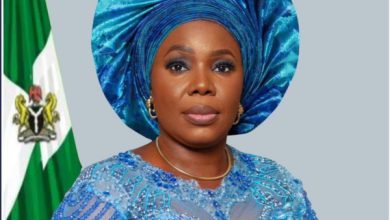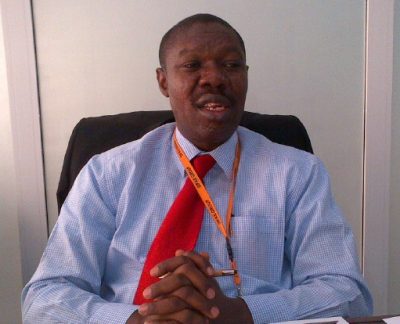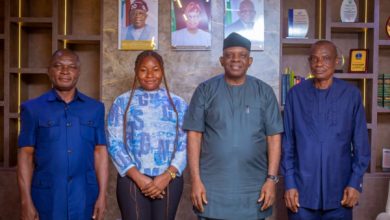Gulf of Guinea Piracy: A Reality Or Farce?
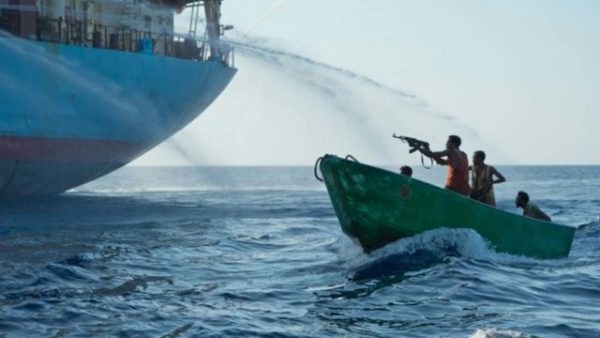
It has become a strange, yet an acceptable tale that reports on piracy attacks in the Gulf of Guinea (GoG) vary depending on whose side from the prism one takes a peep from. Despite commendations from renowned global maritime bodies on the improved safety and reduction in piracy in the area, the region is still placed on the “war risk zone”; a problem which has led to high insurance premiums for vessels and crew members coming to the region.
Over the years, security problems caused by pirates, thieves and terrorists led to hijacking of vessels and illegal transfer of petroleum products in Nigeria and across the West African coast and the negative effect of these attacks gave rise to the Joint War Committee (JWC) of Lloyd’s of London. Lloyd’s is the world’s leading insurance market providing specialist insurance services to businesses in over 200 countries.
Consequently, JWC pronounced that the area from the limit of Togo and Benin Republic maritime boundaries all the way along the GoG to the maritime boundary of Nigeria and Cameroon to be declared as a ‘War Risk Zone’.
Several foreign vessels have refused to venture into these allegedly troubled waters as it would mean they would have to pay “extra war risk insurance” which cost over $15,000 per day for tanker vessels.
The effect of JWC’s action was that the foreign mother vessels which are usually insured by the Protection and Indemnity (P&I) Club would not risk going into the ‘war risk’ areas because the moment they transgress, their insurance premium increases by more than five times.
For instance, tankers of about 100,000 deadweight tons (dwt), mostly made in the 2000’s and cost between $60million – $70million dollars; the insurance premium for these vessels ranges from $300,000 to $500,000. If any of these tankers transit into the war risk zone, for the period they are in the zone, they are uninsured with the normal insurance except they take an extra war risk insurance (EWRI) premium.
A tanker that has an annual insurance premium of $500,000 for example, the EWRI premium will cost $15,000 per day. When such tanker stays in Nigeria for 30 days, its EWRI premium will be $450,000 for 30 days while its annual insurance is $500,000. Hence, most foreign mother vessels refuse to come to Nigeria, only willing to do ship-to-ship (STS) transfer at perceived safer locations.
However, Nigeria has improved maritime surveillance systems and shortened its emergency response time, just as the Nigerian Navy has enhanced its operations. The Nigerian Maritime Administration and Safety Agency (NIMASA) has also been at its collaborative best with the Navy and Airforce, while it has also limited the presence of unregistered vessels or vessels that are not captured by the nation’s data collection system on Nigerian waters.
Although the International Maritime Bureau (IMB) 2019 first quarter rating indicates that the volume of piracy has observed a drastic decline, Nigerian shippers are made to pay colossal sums as extra war risk insurance premium on vessels and cargoes destined for Nigeria on account of what Nigerian maritime stakeholders describe as wrong classification.
As part of efforts to address the apparent international shipping conspiracy against Nigeria, as well as the consequent spiral increase in prices of imported goods into the country, MMS Plus reached several key stakeholders including ship owners, Nigerian marine insurance experts, shipping line operators, maritime lawyers, security experts, among others.
Invisible Trade: African Govts Ignore Billions Spent On Insurance, Freight – Omatseye
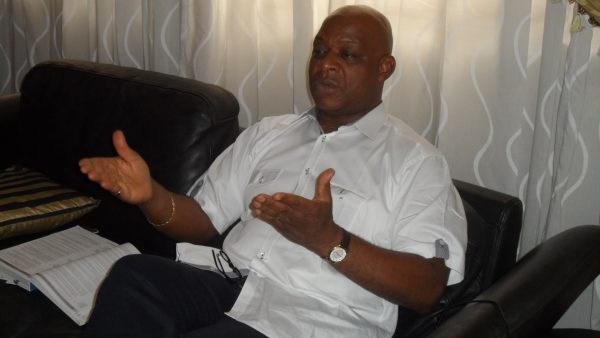
Barr. Temisan Omatseye is a former President of African Shipowners Association (ASA) and former Director General, Nigerian Maritime Administration and Safety Agency (NIMASA). In this interview with MMS Plus newspaper, he speaks on diverse maritime issues, ranging from security to high insurance premiums on ships to the global politics of the war risk zone. He also explores diverse strategies to get Cabotage working in Nigeria, and appraises the nation’s ship building capacity. Enjoy it:
Tell us about the new Cabotage committee which is expected to address the numerous challenges facing Cabotage in Nigeria. What is expected of the committee?
The management of NIMASA recently took a decision to seize the granting of waivers on Cabotage related vessels, seafaring and other issues. They also set up the NIMASA Stakeholders’ Joint Committee saddled with the implementation of the five-year cessation plan. This committee was inaugurated on July 3rd, 2019. After the inauguration, there was a selection process for the position of the chairman. I’m grateful that the other members felt I was appropriate to represent them as Chairman.
Looking at the terms of reference, it is quite heavy. Since Cabotage hasn’t really worked our expectation is to work like Cabotage is just starting today. We are planning to put in systems that allow for full implementation of Cabotage and also for the disbursement of the Cabotage Vessel Finance Fund (CVFF).
We have some committee members from banks; especially the Bank of Industry (BoI) and we would be co-opting some other members from the financial sector. I believe that this committee would be able to work and proffer solutions to challenges facing Cabotage. However, we are only a committee and we would report our findings to NIMASA for implementation. Members of NIMASA are also on this committee, so we are going to take a joint-decision as we support NIMASA in succeeding with this Cabotage regime.
With the recent signing of the African Continental Free Trade Area (AfCFTA) by the President, it is very apt that Cabotage works. Everyone is talking about free trade but nobody is talking about how these goods would be moved. That’s what the ASA was trying to develop when I was the President. We were trying to develop a national, regional and continental Cabotage. With the AfCFTA, it is so clear that if a nation doesn’t get it acts right in terms of logistics, other countries could develop their shipping and logistics trade which Nigeria should be leading.
The objective of cessation of waivers of some categories of vessels is to ensure that the nation develops the capacity to build ships. Looking at Nigeria’s ship building industry, what’s your appraisal, are we making policies that wouldn’t be sustainable in 2020?
Realistically, I believe that Nigeria has to pull from the resources that are available. If you look at the industry of ship building, it is made of up welders, carpenters, among others. The most important part of ship building is the aspect carried out by the nautical engineers who design the ships. The next thing is laying the keels and you need to have expert welders for this.
We have people in Nigeria who are already building barges and tugboats in Warri, Port Harcourt and other areas. We actually have people doing these things but under what supervision? Who has certified these people? Why aren’t we working with the welding associations to certify these practitioners? This is a system that works and I do not see anything difficult in this because we are already building barges. Once you can lay the keel, you’re almost there in terms of building a vessel.
A country like Singapore doesn’t produce anything, but they are building ships. This is because they are able to import all the equipments and they have the welders to put the things together. I’m not saying that it is an easy task, but it is a task that can be processed.
However, it is important to note that where there are ships, shipyards would follow. For example, automobile manufacturers like Peugeot or Toyota makes cars but they don’t specialize in repair workshops for them. It is when people see that so many Peugeot of Toyota cars have been imported into Nigeria that they invest in workshops to repairs the cars and other vehicles. It is the same thing for shipping; when a shipyard builds a vessel, it isn’t the shipyard’s job to repair. Ship repair facilities would be set up as a result of the availability of ships. If Nigeria acquires 50-100 tanker vessels, you can be assured that ship repair facilities would follow swiftly.
The investors in ship repair facilities know that by the requirement of the International Maritime Organization (IMO) those vessels must go into dry-dock at a certain time. In the shipping industry, the shipyards follow the ship.
We need to develop our manpower by training the welders, carpenters, among others; in technical colleges like we had in Sapele, Warri and Benin. Most of the polytechnics were established to meet this need. Polytechnics aren’t like universities; you get hands-on experience at polytechnics.
We can begin to train the next crop of ship builders through technical institutions. We already have the capacity, but if we think we don’t, we can also bring foreigners to teach our people on how it is done. Ship building isn’t a far-fetched dream, nevertheless, if the vision isn’t too big it’s not a vision and don’t get God involved in it.
You have noted that shipyards gravitate towards the availability of ships. Ships also gravitate towards the availability of cargoes for trade. Does Nigeria have sufficient cargoes to guarantee the sustainability of ships and shipyards?
I recall one meeting where Ghanians were boasting that Ghana was the gateway to the West African market and Prof. Jerry Gana stood up and said Nigeria was the destination. If Ghana or any other country in the sub-region is the gateway, it doesn’t change the fact that Nigeria is the destination. The problem is that Nigerian ports aren’t deep enough. Most of the business Lome, Dakar and Tema ports are doing are destined to the Nigerian markets. They can receive bigger vessels that Nigerian ports can’t receive; nevertheless, the cargo is here.
Nigeria is a high importing country as well as a high exporting country. The moment we get our acts together in agriculture, mining and other sectors to compliment the oil and gas sector, we would develop the shipping sector. We don’t even have control over the crude oil carriage, imagine how much the sector would develop if indigenous operators were responsible for only 10% of crude affreightment. I’m not too worried about the trade because we have the cargoes.
As long as the global bigwigs continue to divide us and make it impossible for us to implement our laws, they would continue to benefit more from it. We can’t even get sea-time for the 2,000 seafarers we have trained under the Nigerian Seafarers Development Programme (NSDP). Although, I should take up some of the blame for starting the process of training seafarers without clear plans for sea-time; but I didn’t expect that by the time the cadets would have concluded their trainings, there would still be no systematic plan for sea-time.
Today, it costs a lot of money to get them sea-time; but the capacity is there and the Nigerian National Petroleum Corporation (NNPC) can use the tools of negotiation to insist that Nigerian seafarers are placed onboard vessels used to carry Nigerian crude.
The problem is that we have the perfect example of the right hand not knowing what the left hand is doing. If NIMASA had insisted, NNPC would have included this clause in their Direct Sale of Crude Oil and Direct Purchase (DSDP) contract. We are all Nigerians and we should be working towards the betterment of Nigeria. We should be working towards a better future for our young ones because we don’t want youth restiveness or a situation when our youths would gang up to beat us for our mismanagement. The biggest fear we have today is the high number young children roaming the streets without jobs; we need to find a way to engage them and the opportunities are available in shipping. What is happening is that most Nigerian seafarers who are supposed to be onboard vessels are roaming the streets. One seafarer trains a minimum of five persons. I know this because I have had to train seafarers.
You talked about Bank of Industry being involved in the Cabotage committee. BoI has declined supporting the shipping sector in the past, stating that its focus was on the manufacturing and agricultural sectors. Have they changed their focus?
BoI has a leasing company known as LECON. LECON Financial Services, formerly Leasing Company of Nigeria Limited was established as a wholly owned subsidiary of BoI. NIMASA is a member of the LECON board. So, we are going to explore all options and utilize all available resources.
We are to discuss with the bank to find out why the previous regulations didn’t work and also find out what is workable. If we say we have only $150million in the Cabotage Vessel Finance Fund (CVFF), how do we use that to leverage another $900million? BoI may not have clear provisions for that but they have a clear understanding of how the banking system works.
The bottom line is that we are looking for money. The money we intend to use to acquire vessels wouldn’t be Nigeria’s money. The expectation is that we would explore foreign funding but we need some level of guarantees from the Nigerian government through Nigerian Investment Promotion Commission (NIPC) or the Ministry of Finance or Ministry of Foreign Affairs. We need to guarantee that after the funding of the vessels, the project would be sustainable and the investors get back their monies. These are issues we need to look at.
We should be able to get the likes of African Export-Import Bank (Afreximbank), explore Equity Capital Markets (ECM). How do we set up or manage these vessels? Do we need to set-up a marine insurance company? What do we really need to support our industry? How can we use the floating dockyard to support the oil and gas industry and begin to drydock supply boats? We can start with that before we proceed to 5,000 tonnes vessels and larger vessels. How can we improve on the CVFF regulation and work in line with the Banks and other Financial Institutions Act(BOFA) and regulations?
There have been numerous complaints that the processes of the Infrastructure Concession Regulatory Commission (ICRC) are too cumbersome. How would you rate the concession framework at ICRC?
The concession procedure is too rigid and they know that themselves. They would have to face up that fact and do something to correct it. We have said this several times. The plan we had for NIMASA for security vessels before they got the Norwegian warship was actually for an arrangement via ICRC but the procedure was too tedious. The foreign partners had agreed to provide financing of over $100million for ten years at 3% interest. NIMASA would have been able to provide this and this would have taken care of all the patrol boats required. ICRC concession agreement was terrible and the partners pulled out. That is why we are trying to bring in private sector ideas and strategies because many of these guys don’t have business experience. Those of us who have managed private businesses have made mistakes and learnt from the mistakes.
We have to implement Cabotage from the Act. We have to understand what the Act says, for instance, the Act says that all vessels that must trade in Nigeria must have licenses. Have we set up the procedure to issue these licenses that must be carried onboard? Since Cabotage started I’m not sure any license has been issued. I take full responsibility because I was there when it started but at that time I barely understood these things. We were overwhelmed by the work, but if we begin to follow the processes of the Act, you would see the Cabotage fall into place. You can’t waive Cabotage; you can only waive certain aspects of the services that Cabotage ought to provide. Unfortunately, people are using receipts as waivers but we would address these issues.
On Nigeria’s recent signing of the AfCFTA, how involved is the maritime sector?
That is another problem that I’m actually facing. I had a long conversation with the Secretary General of ASA recently and she was telling me that shipping was not considered in drafting the AfCFTA. I’m yet to confirm this but I’m worried by it. I’m planning to get the AfCFTA not because of the trade issues but to know the logistics aspect. I have told the Secretary General of ASA to schedule a meeting with the African Union (AU) Chairperson on this.
The AU through ASA is trying to set up a maritime directorate which would be operating similar to NIMASA. Most continental blocks have their regional maritime administrations but Africa doesn’t. So, when we go to IMO Council, every region comes with its idea but Africa doesn’t have its position. Shipping and logistics in the AU are under several departments, we don’t have a specific team. The African heads of state have approved for this maritime directorate and we are trying to work out a system with regards the funding and other aspects of this directorate.
This AU maritime directorate would have departments like maritime security, maritime safety and others. IMO is under the United Nations (UN), so AU should have a maritime directorate which takes a position and becomes an observer at IMO. Before going for IMO meetings, this directorate should have studied all the issues coming up and taken a position for the interest of Africa. Right now, what happens at the IMO is divide and rule, because they pick a handful of us and separate us. When we vote on issues we assume that we are voting for the interest of the globe whereas we are only voting for the interest of Europe and America. We have to say no and change this arithmetic. This is international politics but we can achieve this with the AU and that department can finance itself.
Why is it that transportation and maritime doesn’t come to the minds of the African governments, yet this sector plays a prominent role in other parts of the world?
The problem is that the governments in Africa don’t see ships. They don’t understand the value of ships. They don’t know the kind of money available in the seas and oceans. I wish Nigeria had the Cargo Tracking Notes (CTN) that francophone countries have because these countries can tell how much was paid on all Cost, Insurance and Freight of all cargoes coming in and going out of the country. Within three hours they can give that information because all that information is stated in the CTN but Nigeria doesn’t have such statistics.
There was a strange incident during ASA meeting by the President of Rwanda or Kenya. A delegate was making a presentation and he got to a point and said that on insurance alone Kenya or Rwanda was paying $9billion. The president was sleeping but as soon as he heard that he woke up because he was stunned to hear that such sum was expended by his nation, yet he wasn’t aware. This is so because it is an invisible trade. You don’t see it, but for every import you make, there is an insurance element on it. We’ve not talked about the actual cost and the freight component. These are monies leaving the shores of a country but no one sees them. You don’t feel the impact of the money but they are actually leaving the Nigerian economy.
Now we’re talking about Free on Board (FOB) and Cost, Insurance and Freight (CIF), what would it take the Federal Government to change our trade platform from FOB to CIF?
The actual problem is the NNPC Act. The Act says that all goods must be moved on FOB. The government has to change that policy first. The government could say that all exports would be on a modified CIF basis. A modified CIF would be one where you separate the freight element from the cost element. For instance, a modified CIF in crude affreightment would mean that the cost of the crude would be separated from the cost of the freight. When the Letter of Credit (LC) goes and the cargo is lifted, the owner of the crude which is NNPC can submit its invoice and get paid as if it was FOB, but the ship owner wouldn’t get paid until the goods arrives the destination.
So, the sellers of the cargo would have been satisfied but the freight wouldn’t transfer until the goods have arrived. NNPC is afraid that someone could seize its goods in a case where there is dispute. However, with this system ownership has transferred and NNPC could go into an agreement with the ship-owner. However, a ship-owner that carries crude abroad wouldn’t suddenly divert that crude because we have the Global Maritime Distress and Safety System (GMDSS) of every cargo that leaves the country. Once the vessel leaves, the cargo owner must plot the direction and the maritime administration can trace that ship to its destination. That can be done.
Once Nigerian ship-owners know that there is availability of cargoes, they can begin to utilize the available funding mechanisms to provide the vessels. Initially we could have 100% foreign crew, but as we begin to put our cadets onboard over a period of five to ten years we could reduce the amount using the same system that NLNG used to train many of the seafarers they have today.
What has stopped the government from changing this policy over the years despite the much publicized disadvantages?
It is politics. Those involved aren’t thinking about national interest. I’ll tell you the truth, NNPC is thinking of its personal interest and not the national interest. They do not realize the impact that shipping has on the national economy. All nations protect their Merchant Navy but NNPC has been nonchalant, although they are trying to do their bit through NIDAS shipping. They shouldn’t just do this because it is for NNPC but consider the national interest.
Recently, Nigerian Shippers’ Council (NSC) expressed concerns on the high Extra War Risk Insurance (EWRI) premiums and intends to protest this at the next Global Shippers’ Forum (GSF). What’s your opinion on this issue?
I dealt with this issue when I was the Director General of NIMASA. NLNG came to us complaining that anytime they cross five degrees east, they would be charged war risk premium which was about $1000 per day. This war risk zone goes all the way through Bakassi and Calabar and it is irrespective of which flag vessel you have, you must pay the war risk premium.
War risk issue isn’t something that can be tackled by Shippers’ Council. It must be a national issue. These global companies are making a lot of money from us as a result of the Joint War Committee (JWC) report of Lloyds. As at the time we made the research, we discovered that they were collecting between $150million to $200million per year for just NLNG vessels and crude on war risk. This is free money because there was hardly any claim paid. If anything happens on that, their Prime Minister or the Queen of England would call the President and the Minister and those involved could lose their jobs.
The issue of war risk doesn’t start from piracy. Piracy, like what we saw in Somalia, starts from the shores. It can’t be solved by just having patrol boats. It starts with other security agencies offshore been able to capture carefully what is happening at the shores, gather intelligence so that those people going to the seas are stopped before they get into the boats. All NIMASA needs to do is to utilize its satellite to monitor those who go onshore. Sierra Leone was in war risk but it came out. There is a process to get out of the war risk but the government must play its part. There are strategies to reduce slowly and gradually eliminate the war risk cover but the President has to be interested and play a significant role if this problem would be abated. If the Nigerian government doesn’t play its role the system wouldn’t work and if it tries it the British Prime Minister or Queen of England would visit Nigeria. Whoever initiates such solution without the President’s consent could lose his or her job and be in a mess because this is international politics.
These insurance companies were making over $600million from Extra War Insurance premium from Nigeria as at the time we did that research. The prices would have gone up today. This sum was for just vessels, not including rigs, supply vessels, SFIVs, FPSOs, among others.
Another problem is that one year after you pay that premium and there is no claim by you, some money ought to be returned to you but they never reimburse you. That’s the war risk fraud.
The anti-piracy bill has been signed by the President, what does this mean for the maritime industry?
Honestly, I just heard about this recently when I was with the Executive Director, Finance and Administration at NIMASA, Dr. Bashir Jamoh. However, anything that would eliminate piracy and allow for proper persecution is commendable. Some of the challenges we faced in the past was that we caught these pirates sometimes but we didn’t have the prosecution powers. Previously, we asked the Attorney General, Mohammed Bello Adoke, to give us powers to prosecute but he refused. All we could do was to arrest these pirates and hand them over to the Marine Police and within 48 hours these guys are back on the streets again.
You have been selected to be Chairman of the upcoming 2019 MMS Transport Leadership Lecture and Awards. What’s your take on this?
People have to take transportation seriously. If you go to Greece, it is the ship-owners that recommend to the President who is going to be the Minister for Maritime Transport. The maritime sector and transportation generally is something you nurture. You can’t bring in people who aren’t knowledgeable about the industry.
Several years ago, the Ministry of Transportation in Nigeria was a technical ministry, people were trained before going into the Ministry and others were trained in the Ministry. However, some of these trained hands were moved to other ministries after their trainings. Transport isn’t a place where you bring someone who was in the Ministry of Culture and Tourism to become a Director, Maritime Safety.
You should bring someone who has the skills and that is what I’m hoping will happen with this new Chartered Institute of Transport Administration (CIoTA) Nigeria bill that has been passed into law. With this development, people in the Ministry of Transportation should not be allowed to sit in any position to determine transport issues unless they have gone through certain level of courses from the Chartered Institute. We have to professionalize the industry. Can anyone be allowed to head the Federal Airports Authority of Nigeria (FAAN) or the Nigerian Civil Aviation Authority (NCAA) without sufficient training and skills on the aviation sector? We would suddenly start having planes drop from the sky every day.
Is it when we begin to have countless spillages on the sea that we would take things seriously? It takes almost 50 years to clean the waters after an oil spillage. We take everything for granted here in this country. I believe strongly that people who understand the maritime sector should be there to take charge of the Ministry of transportation. The maritime industry is too big to play with and it is too big to play politics with because we would be playing with the lives of millions of Nigerians.
On your programme, I’ll be there and I’m happy you’re bringing in the Governor of Edo State, Mr. Godwin Obaseki. They have the Benin River Port project which he is very keen on. I have told him to make that port a fishing terminal where all those involved in fishing business can go to. Fishing trawlers can congregate there and there is easy access to the East and other parts of the country. There are such fishing terminals at Dakar and we can use that as a basis to develop Benin port.
We Are Poised To Solve The Security Challenge –Dakuku
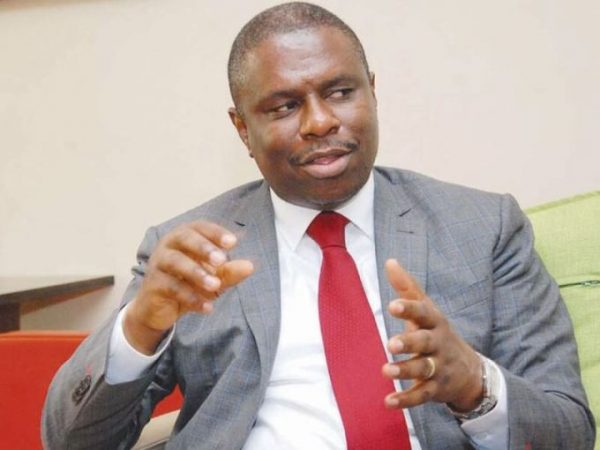
Dr. Dakuku Peterside, Director General, Nigerian Maritime Administration and Safety Agency (NIMASA) has stressed the significant drop of piracy in the Gulf of Guinea (GoG), noting that it wasn’t just a product of NIMASA’s effort.
His words:
“The improved security on the nation’s waters is as a result of the collective effort of all players who operate in the sector; NIMASA, Nigerian Navy, Nigerian Ports Authority (NPA) and every stakeholder that is working in the industry. Going forward, you would observe more reduction in the cases of piracy and maritime crime. Nobody can talk about serious development in the maritime sector if we continue to have maritime crime and piracy within our domain. To that extent we have to put in place a number of things”
The Director-General of the Nigerian Maritime Administration and Safety Agency (NIMASA), Dr. Dakuku Peterside, also assured that piracy and other maritime crimes has reduced drastically in the Nigerian maritime domain, making it safer for investment.
He stated that the passage of the Suppression of Piracy and Other Maritime Offences Bill which was signed into law by President Mohammadu Buhari recently would provide the much needed legal and institutional framework for Nigerian maritime security enforcement agencies to ensure safety of navigation in Nigerian waters.
Speaking at the recent 2019 African Day of Seas and Oceans, Dakuku said;
“We have facilitated the draft of a Suppression of Piracy and Other Maritime Offences Bill which was signed into law by Mr. President on the 24th of June, 2019. The Law provides for the criminalization and repression of piracy and other maritime crimes; and gives credence to the relevant international treaties of the United Nations and International Maritime Organization ratified by Nigeria on maritime safety and security. It would provide the much needed legal and institutional framework for Nigeria through its maritime security enforcement agencies to ensure safety of navigation in Nigerian waters.
Following the signing of the Piracy Bill into law, NIMASA in collaboration with Federal Ministry of Transportation and the Nigerian Navy would be convening a Global Maritime Conference from the 7th to 9th of October, 2019 in Abuja to address growing security concerns in the Gulf of Guinea; which have continued to feature on the agenda of international and national discourse on sustainable development, safe secure shipping and sustainable use of the seas and oceans.
The Conference which will be attended by over three thousand participants from all over the globe will help establish a broad comprehensive approach to tackling maritime insecurity in the Gulf of Guinea and will provide opportunities for developed, developing countries and other stakeholders in the industry to have oriented discussions on how to effectively address these security concerns in the Gulf of Guinea.
PR Strategy Can Correct Perceived Piracy In Nigeria – Egesi
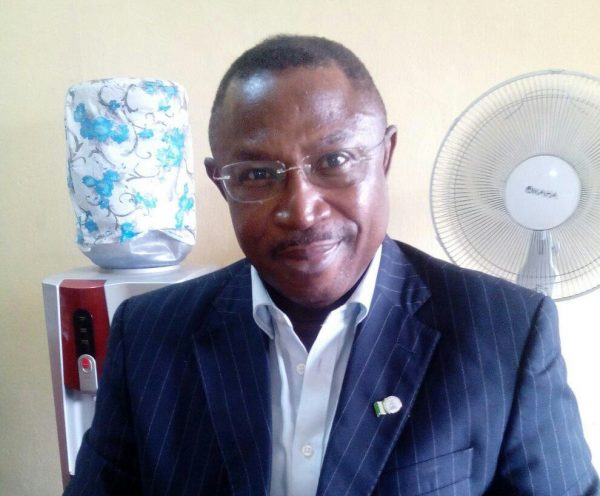
Mr. John Egesi is a former Director General of National Maritime Authority (NMA), now Nigerian Maritime Administration and Safety Agency (NIMASA). In this interview with MMS Plus, he reveals how the Federal Government could address the perceived risk of Nigeria’s waters using Public Relations strategies. Excerpts:
How can Nigeria correct this burden of Extra War Risk Insurance (EWRI) that has led to increased prices of goods and services in Nigeria and threatens to cripple the nation’s shipping sector?
This is an issue that should be addressed by the President because it is an issue that affects the country’s trade. The issue of trade is the livewire of any country whether the country is landlocked or a coastal state. This insurance problem has existed for so long even though I believe that piracy has dwindled significantly. The Nigerian government should advertize the fact that the problem has been curtailed. We must arm ourselves with the requisite statistics that we can take to London which is the administrative centre of maritime in the world. The government PR should take up this onus. PR shouldn’t be about shouting or throwing blames but addressing issues like this. This should be done through NIMASA and other maritime agencies that the International Maritime Organization (IMO) recognizes. The research department of NIMASA should also be collecting data with regards to the activities of pirates.
It is also important that we don’t confuse piracy with local agitation for certain matters. If local people are agitating for certain issues, the government should be able to address this and solve the problem. Are these real pirates? Pirates are the types we have in Somalia. What we have here may be a mixture of political agitation and people who take advantage of such situations to cause mayhem.
This is an issue that can be handled most effectively by the federal government in cooperation with the state governments in Bayelsa, Delta, Cross River and other coastal states. We must know what the nature of the problem is. Whenever there is a skirmish, it is reported as piracy.
The sort of challenges that have made these global bodies introduce numerous charges for ships and cargoes coming to Nigeria may not be what it has been described; hence the need for the government to better inform these world bodies.
Trade and finances are shy things and little things to make some ships refuse to come to Nigeria. I remember one time while I was a director at NMA, we tried to play a military rule on ships coming to Nigeria to lift oil and they simply stopped coming. I had to work out another formula so that they could pay what we wanted them to and go on with the business. The business of oil is in the purview of perfect competition. If we make ours too expensive or introduce clauses that are unfriendly, they would go elsewhere. So, this is something that we can’t handle with a cleft hand to handle because it is international trade.
On the aspect insurance and underwriting the risk; why do we have an untrue perception of the risk in Nigeria?
The underwriters have studied everything that would affect their risk. It isn’t something we can cover unless we have proof to show for it. This proof has to be very clear because there is global satellite and everyone can see what happens on the waters everywhere. This is an open wound that Nigeria has and only the truth can heal it. The government must be able to solve it.
I don’t know how politicized the coastal Naval forces are, otherwise, if they are not politicized where are the statistics? You should note that some of the statistics of piracy and other incidents come from the ships that visit our ports and the charges are introduced as a result of the accounts of these ships. These ships also have insurance and from their reports the insurance is adjusted to cover the mishaps. How do we account for the fact that ships spend more time at Nigerian ports when the movement of these ships is programmed? If it takes two or three weeks from London to Nigeria, why should the ships spend longer than usual at our ports? As long as they keep having these challenges, they would give their reports which wouldn’t be favourable to Nigeria. However, it isn’t beyond the government to eliminate this problem. The problem is that it is difficult to talk about the sea without talking about politics and I am trying very hard not to talk about politics.
The insurance world is interlinked. In marine insurance and insurance generally, there is a Latin phrase ‘uberrima fidei’ meaning “utmost good faith” because of the insurance and global shipping is centered on trust. They are hell-bound to report the risk nature encountered by the ship because that is the only way they would be able to press for claims if anything happens to the ship. The ship-owner pays the premium, he is bound to report things the way they are. If we want the insurance premium to be eradicated then we must address the underlying issues and show proof that the problem has been addressed. If we bring out our statistics and it counters what the global bodies are saying then we can argue that they are wrong and show the right thing. This insurance issue isn’t an accident and it isn’t something that can be hidden. It came as a result of a perceived risk, if we remove the risk it would be known to the world.
I engaged a Director, Public Relations at NIMASA recently on the need to churn out statistics and detailed reports of these pirate incidents to illustrate the veracity of the global reported cases on Nigerian waters and he lamented that it wasn’t the agency’s core responsibility , unlike the International Maritime Bureau (IMB). If it isn’t NIMASA’s onus to provide such information, who is responsible?
I guess you believe that NIMASA is responsible. What if I tell you that NIMASA may not be responsible? I’m not saying NIMASA shouldn’t have such information, but have you gone to the Navy? How often does the Navy encounter pirates? What statistics do they have? If you go to the administrative level of the Navy, they should be able to proffer the answers. However, I’m not sure how open the Navy would be.
This is also issue that the Port State Control which is the Abuja MoU should have statistics. The Abuja MoU doesn’t belong to Nigeria, rather it is a congregation of member states in the region with the headquarters in Nigeria. It has control over all ships transiting the member countries and inspects the ships to ensure they meet the requirements of the port states. All incidents recorded in the region would be reported by the Abuja MoU. So, these bodies should have an idea of such statistics if NIMASA doesn’t.
Again, the person you were engaging at NIMASA was in the Public Relations department. The ideal people to make such findings from would be the research department because the PR only says what it has been told to say. It’s like the Ministry of Information. The PR may be the interface between the organization and the public but it is mainly used to streamline information. If you want the raw information, you would have to go to the research department.
While Nigeria suffers economic losses as a result of this problem, global insurance bodies charge a minimum of $15,000 as Extra War Risk charge daily for ships in the nation’s territorial waters. This problem for Nigeria is good business for these insurance companies. Can we call it a global conspiracy?
It isn’t a conspiracy. It is a situation that favours them. This is the reality of economics playing out. It is the reality of trade. The manufacturing sector, the shipping sector and the language of global shipping, are all in London. The 1906 Insurance Act is a London law and not a Nigerian law. Nigerian laws were copied from it and it was copied verbatim.
Back to your question, Lloyds is an international name while Nigeria is minuscule. There’s something called ‘gravitas’ it means for something to gravitate to somewhere. Trade gravitates to London and it isn’t that they planned to seclude Nigeria. They have built their shipping, manufacturing and insurance companies over the years and they are reaping the rewards. There’s an Igbo saying which translates that if one washes his hands clean he can eat with the elders. Singapore woke up and became relevant in global trade and today they can call the shots. When the world has a lot to ask from you, they would come to you and the trade would be in your favour. Assuming there was no crude oil anywhere in the world except Nigeria, the world would come on their kneels and agree to our dictates, but there is oil in several parts of the world.
So, the truth is that the global players didn’t congregate to cheat Nigeria even though they are cheating us. The element of trade favours them and they are exploiting this optimally. If the trade balance could shift to Nigeria’s side, it would benefit the nation.
If Nigeria or Africa could have major P&I clubs like the Paris club and Nigeria, Ghana and other nations in the region will begin to produce significant amount of goods for export; we could insist that the insurance must be done in Nigeria because the goods are Nigerian goods. The global world would respect that we’re the seat of the trade. Presently, we can put insurance on exports like cocoa but the person buying it has more power because the ship is coming from his place.
When it comes to trade, you find that the generally accepted language is English and this gives Lloyds of London more advantage. In trade, you can reduce the cost burden and volume of exploitation of the person on you, by developing your goods and services. This is what a country like Japan has done. Spain has also done the same thing.
War Risk Tag Is A Perception
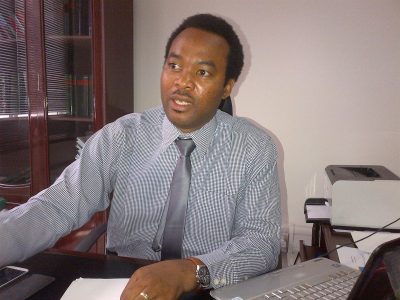
Mr. Emeka Akabogu is a Senior Partner, Akabogu & Associates
His words:
“These charges are levied typically on individual transactions. An underwriter who is about to underwrite a risk reviews the risk and charges the premium based on the risk which is associated with the transaction. When there is a need for an additional charge because of peculiar circumstances, the underwriter as part of his responsibility needs to highlight that additional risk and make provision for it. So typically, it is a contractual issue between the contracting parties and the underwriters that they engage”
He said that it is important to note that the charges which are imposed either as premium or as surcharge is the function of the perception of the risk.
“If there is a regional or global perception that the Nigerian environment is one which is fraught with war like risk, then it is something which has to be worked out because that is the foundation for the imposition of the charge”
“Immediately that perception which exists is removed, then that risk will no longer be a significant factor for them to bill a charge for vessels coming into the country or region. The effort we should be making is to address the perception which gives rise to this charge which is a result of a commercial issue and not a legal one”
Nothing that Nigeria may have become a victim of global conspiracy on the perceived risk on Nigerian waters; the widely recognized expert in maritime law and policy in Nigeria, stressed that there has to be a methodical approach on the part of Nigerian interest.
According to him, this methodical approach will originate from the companies or range of companies that impose such charges.
“We need to look at the basis for the perception which they have. It cannot be that Nigeria will be singled out of all destinations globally. I doubt if Nigeria will be singled out just for no reason out of all global destinations. If we believe that the perception is unfounded then we need to have a methodical strategic approach engaging with those international commercial interests. These interests include both the regulators and the advocate like the IMB, and the insurance interest themselves. The insurance interest is always based on the risk profile set by IMB and other international seafaring groups or shipping groups. These are the groups we need to be engaging with because they set the agenda for the determining relevant profiles”
“Also, if we are engaging them, it should be factually not sentimentally or emotionally using existing Nigerian or regional reports which indicate that there has been substantial reduction in piracy attacks and other related activities. So, it is not an emotional journey, it is a factual empirical journey which must be undertaken digitally” he added.
We Are Working Hard To Resolve It –Vongtau
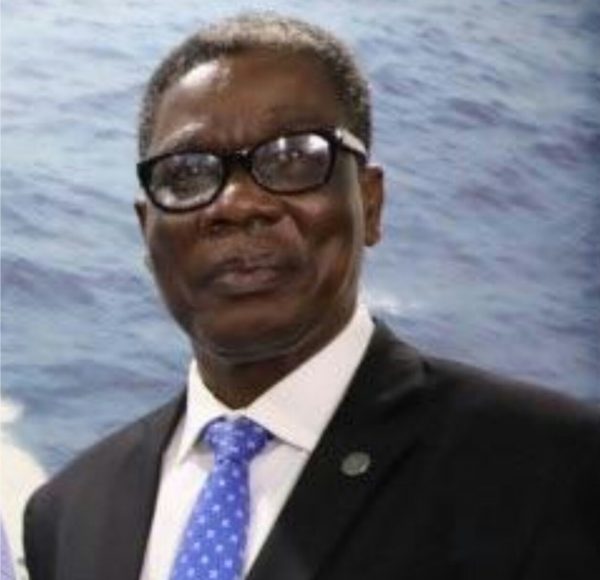
Mr. Samuel Abu Vongtau is the Director, Legal Services, Nigerian Shippers’ Council (NSC)
At Nigerian Shippers’ Council, the continuous classification of Nigerian waters as a War-Risk Zone has been a matter of great concern to the agency as the Director of Legal Services, Mr. Samuel Abu Vongtau told MMS Plus.
His Words:
We have been meeting some authorities that are relevant to this. We are taking the issues up to the Global Shippers’ Forum which is a body of Shippers all over the world. We have also started speaking with the Union of Africa Shippers’ Councils on this issue. My Chief Executive has always been talking about this issue and he has been speaking with the shipping companies. Also, we have scheduled a meeting where the global representative of the Global Shippers Forum is going to attend and I am sure that my Chief Executive will also raise up that issue. So, we are working very hard to resolve it.
Even today, we had scheduled a meeting with the shipping companies but the meeting had to be postponed. If that meeting held, I wouldn’t have been on this anti-corruption sensitization walk. We have regular meetings with the shipping companies and this is one of the issues. We are trying to reach a Memorandum of Understanding where all these extra charges would be streamlined by the NSC.
Nigeria Is Being Targeted –Bello
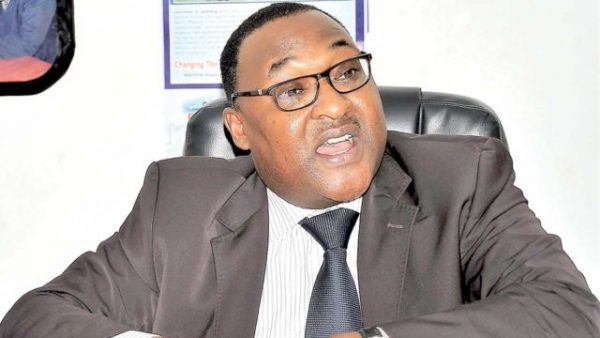
Mr. Hassan Bello is the Executive Secretary, Nigerian Shippers’ Council (NSC)
According to Bello, Nigeria has concluded plans to protest against the classification of her territorial waters as War Risk Zone at the Global Shippers’ Forum (GSF).
GSF is a global Non-Governmental Organization (NGO) with the mission to influence regulatory developments affecting international freight transport and the policy decisions of governments and international organizations as they affect shippers and receivers of freight.
The NSC boss confirmed that Shipper’s Council would lead the nation’s planned protest against the categorization as war risk zone, noting that the few incidents of armed robbery attacks on the nation’s territorial waters were not enough stigmatize the country.
His words:
“We are going to lead a protest and a discussion at the Global Shippers’ Forum on why Nigeria should be classified as a war risk nation when we don’t have war. There is also the classification of Nigeria as a nation of piracy when what we experience at sea is mere robbery incidents. It is also unfortunate that whatever happens in Togo is claimed to have taken place in Nigeria. Recently, there was an incident in Togo but they claimed the pirates were from Nigeria. It is grossly unfair and unethical.”
“The point we are making here is that Nigeria is being targeted. And it is a public knowledge that Nigeria is making serious efforts to ward off this menace but these efforts even go unacknowledged. There is an existing relationship between the Nigerian Navy and NIMASA for a coordinated effort against this robbery and piracy at sea, they should be commended and encouraged to do more”
According to Bello, Nigeria at the Forum will seek to ascertain how the risk premium is arrived at and what constitutes the war risk in earnest.
“We do not deserve the war-risk tag on us. Our waters are safe. Again, we have to commend the Marine Police for greatly streamlining procedure for cargo clearance at the ports. The responsiveness of the new Inspector General of Police (IGP) has been remarkable” Bello further stated.
There Is Need For P&I Club In The Region –Gbolahan
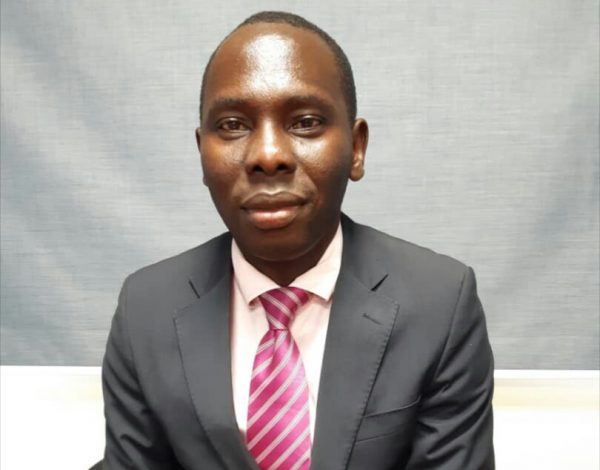
Mr. Adu Gbolahan is an Insurance Expert with FBN Insurance.
Gbolahan noted that the problem ‘extra war risk charge’ and other high insurance premiums on vessels coming to Nigeria, emphasizes the need for Nigeria and other African countries to form an African P&I Club.
His words:
These war risk charges are not benefitting any insurance company in Nigeria. It is done by the global players and the Nigerian insurance sector benefits nothing. Even if a Nigerian company takes part in such insurance, they have to send it abroad. So over time, this has been the issue because at the end of the day, it is capital flight going outside the country.
There is need for a P&I Club in the region that must have the backing of the African Union (AU) because such insurance require funds that have to be pulled together in which one insurance company or one country’s insurance sector might not be able to provide. When there is a pool of funds together it can work smoothly because insurance is based on pool of funds. However, this one is basically on foreign market because it is an international business. If African countries or its insurance companies can come together under AU in which every African country belongs to, and a consortium of experts from different countries is set-up as the board of the P&I Club; that insurance would go a long way. Maritime operators in the public and private sectors in Nigeria would ensure that Nigerian waters are safe when they know that the nation’s fund is in the P&I Club. The government would beef-up security in these troubled areas to limit the risk and prevent losses in various countries. Insurance companies in the country and across the region would also not be left out in this fight against piracy because their funds are involved and they wouldn’t want to pay the colossal sums that would arise as claims.
However, for the global community, especially foreign insurance companies, just a little report of piracy is an opportunity to make more money by introducing new charges for the risk or increasing the war risk charge. Most times they have to pay these charges and premiums because the International Oil Companies (IOCs) mandate them to pay.
It is also important that the Nigerian National Petroleum Corporation (NNPC) and International Oil Companies (IOCs) realize the need for Nigeria to benefit from the freight component and the insurance on the carriage of the nation’s crude.
“We shouldn’t allow the insurance of carriage of Nigerian crude to be done in America. America isn’t Nigeria. This practice is crippling the local insurance sector just as it shortchanges the indigenous ship-owners. Some IOCs like Shell, Mobil, among others have threatened indigenous ship-owners that they can’t give them contracts if they don’t get American insurance. This is killing Nigeria’s insurance industry because the sector can’t build capacity without funding which is generated via premiums” he added.
I Don’t Agree With The Conspiracy Theory –Onyung
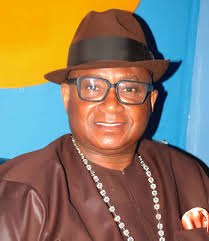
Dr. Mkgeorge Onyung is the President, Ship Owners Association of Nigeria (SOAN)
He said:
I think everybody in business wants to make profit. There are definitely some security threats in our waters. A school of thought believes that this is critical while others believe that it is not too critical. Also, carrying containers and goods is a big responsibility and I feel those responsibilities will have to cover the risk. I am a ship owner and we have been attacked by pirates, so I know how it is. I will not agree with the conspiracy. Those who don’t have usually feel that those who have are oppressing them. However, if you have the knowledge and you begin to see within the prism of those who are entrepreneurs, you will see that they need to make profit. If they don’t make profit, then they will go out of business and this will create unemployment. The same people who are saying they are conspiring to rip them off are the same people that will complain about the unemployment.
We are going to look into it and examine it properly so that the global insurance companies can do what they have to do and we will do our own part too.
Noting the neglected aspect of negotiation with the Council involved for the review of these charges and the need for frequent dialogue between the Council, global insurance bodies and underwriters to periodically review the charges to reflect the state of the ports or security of the waters;
He added:
Nigerian Shippers’ Council was formulated to create a balance and look into issues like this. We should have regular appraisals and the Council would have to display Key Performance Indices (KPI). All these indices will help to guarantee progress and ensure that certain reports can be reviewed.
NSC’s move is an effort in the right direction. It gladdens my heart to hear such kind of report. I believe that if NIMASA, Navy and stakeholders who are involved improve on the security of our waters, the report will keep getting better. When the report gets better, then you can now begin to advocate. I will suggest that the Chamber of Shipping should put this as part of their activities if they haven’t done it before and address the issue.
Crude-Oil Insurance Can Sustain Nigeria’s P&I Club – Capt. Taiwo
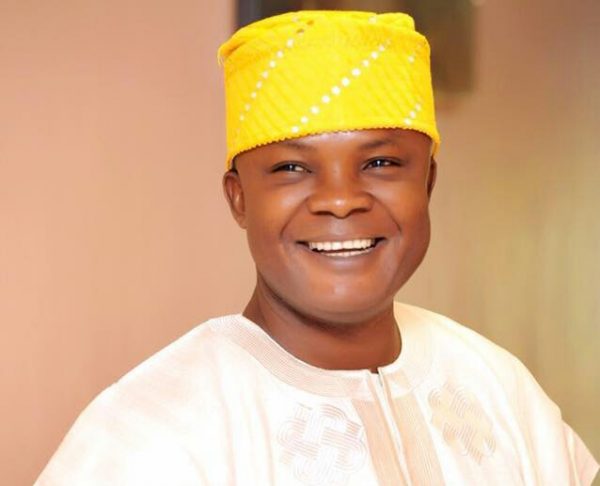
Capt. Taiwo Akinpelumi is the Lagos Coordinator, Nigerian Indigenous Ship-owners Association (NISA). In this interview, he reveals the aspirations of Nigerian ship-owners to develop a Protection and Indemnity (P&I) Club, while he also appraises the potentials and threats. Enjoy it:
We hear that Nigerian ship-owners intend to float a P&I Club, how true is this?
Yes, it is true. Nigerian ship-owners and some other stakeholders are coming together to see the possibility of floating a P&I Club. This is an effort to address the capital flight as a result of the P&I insurance paid to foreign companies. We intend to have a P&I Club domiciled in Nigeria because of the volume of insurance transactions paid abroad by Nigerians.
For the insurance sector, one thing the issue of trust is sacrosanct. Do you envisage that this P&I Club would enjoy the confidence that the global insurance giants have?
The conventional insurance companies are profit making commercial organizations but P&I club is a nonprofit making organization. How did the P&I come into existence? Ship-owners met at a coffee shop in London and discussed on how they could protect themselves from third party liabilities. That is how they came about the mutual association is called Protection and indemnity (P&I). P&I is a nonprofit making organization and that is why it is very important and necessary that the stakeholders are the ones driving it, specifically the ship-owners. It is to protect the ship owners.
The 25% that is not covered by hull and machineries as well as the third party indemnity and that is what the P&I is for. When ship-owners agree to come together as we have done, they can protect themselves even as they will have to contribute to that Club.
For instance, if 10 ship-owners come together to see how they can protect their investments, there will be no question of sincerity in paying claims because at that time, you are protecting yourselves. Also, because you are protecting yourself, you know what is at stake. A pool will be created where members will contribute money. For example, if a ship owner has a problem; money from this pool will be used to assist the ship-owner. With this P&I Club, we are looking at opportunities where we don’t put too much emphasis on global insurance companies.
Can people now pay their insurance with P&I rather than paying at the global insurance companies?
Yes, but this involves a lot of money and some element of politics is involved too. The International Groups are the leading P&I insurance companies. They are about thirteen and they underwrite over 90% of the world fleet. It is not as if we still have that financial muscle because the P&I claims are usually huge, essentially when you talk about pollution, third party liability and all others. It requires huge capital commitment.
However, we have to start from somewhere. What we are trying to do is to see what we can come up with even if we have to outsource part of the P&I Club to be underwritten by one of the international bodies. If we float a P&I club that is well recognized by ship owners in Nigeria, West Africa, or Africa, it will limit the patronage of foreign P&I clubs and that is what we are trying to achieve. This will invariably reduce the capital flight. If we analyze what we pay annually as premium on P&I, it’s huge. The effect will go a long way to cushion our economy and translate to a steady GDP growth.
On the issue of Free on board (FOB) and Cost, Insurance and Freight (CIF), if we are talking about P&I and insurance, how do we balance it to allow the trade term which doesn’t support insurance in the country?
When you talk of insurance, it is very vast. You have ship-owners trying to protect their interest, the cargo you have to insure, the insurance based on CIF and others. If you are talking about how our cargo is been moved here, if you say FOB, it is whoever that is coming to buy from you that will bring the ship and will also insure the cargo because of the perils of the sea. So, it’s a bit different from what we are talking about.
The people that have the trade tend to say where the insurance is done and most of the trade is out there in China, Europe and other countries? Do you think this will be an issue?
What we are talking about is bulk liquid cargo. We can wrestle and have maximum benefit from where we have the cargoes. If you say we don’t have the trade and you are talking about container business and dry bulk cargoes, you are right we don’t actually have control. But for the liquid cargo, we have the crude oil. If we can attain CIF on every litre of crude oil lifted out of this country, it would go a long way. We will provide freight, we will provide insurance and this is a good start.
For instance, China doesn’t have much hydro carbon business, so they can concentrate on their area of strength. We should also concentrate on our area of strength, we cannot have it all. If what we are talking about is bulk liquid cargo, why can’t we actually start from there? We will make sure that the freight and insurance for every litre of crude oil that leaves this country emanates from here.
This is business and you have also talked about partnership which is beautiful on our part. But for the global insurance bodies, what is in it for them because they already enjoy from the categorization of Nigerian waters as a war risk zone. Looking at both sides, do you think that they would be willing to partner with us? If not, what other options does Nigeria have?
We are not looking at it in the form of partnership. For instance, I am at liberty to approach them to say I want to underwrite. In insurance, they call it re-insurance and it’s not going to be totally domiciled in Nigeria. For instance, as starters we come together and examine our capacity and if we see that the cost that we are supposed to attain couldn’t be achieved, we will re-insure with the international group. Let’s say we were able to attain 20% out of 100%, the remaining 80% could be re-insured with the international group and this is what we are saying. We are not talking about partnering with them. We will start from there pending when our capital base will grow and we become fit to stand alone.
NIMASA and NNPC have a role to play. Towards the end of last year, NNPC floated NIDAS shipping. Are you looking forward to a partnering with them?
NIMASA has been at the forefront of this idea as well as an African P&I club. They are the one anchoring and moderating it. However, they appreciate the fact that it has to be stakeholders and ship-owners call. The regulatory agencies have nothing to do with P&I Club. The ship-owners have to come together to agree on floating a P&I club of their own will. There is already a committee for this.
From your perspective, what is the state of security of Nigerian waters right now?
The security in the country, generally, is nothing to write home about. What is applicable to a larger society will affect the maritime industry. Also, my opinion about the maritime security contract entered by NIMASA, I have not seen any positive outcome as to how it translates to a better security of our waters.
In the first quarter of the year, the International Maritime Bureau (IMB) gave a positive report about Nigerian waters, while the Anti-piracy bill was also passed into law recently. How would you rate these developments?
The Anti-piracy bill will go a long way to assist in addressing the maritime security risk. In the past, we had several cases where people are apprehended but there was no law in place to try them and you see criminals going scot-free.
On the IMB report, you cannot have zero maritime security risks in any nation but as far as we are concerned, our security situation in Nigeria is both socio-political and economical. When there is high rate of unemployment, it will translate to high security risk even on the nation’s waters. Maritime security is very important but we must also develop the local capacity of our shipping industry. If we engage these youths that are unemployed, it will reduce the security threats on our waters.
NPA recently gave 10% discount on ship dues for vessels that call at the Eastern ports. Has this affected patronage in that part of the country?
You can give zero waivers, but if you do not address the security challenges there, it will be of no use. Who wants to risk lives, his ship, cargoes, and other properties?
There is no doubt that this is a good idea or initiative by NPA. It is just like a tax holiday. If a company is just starting, they would be given tax holiday. However, the solution should be how we could attain safe maritime activities. How will our waters be secured? How do we attain a more secure maritime environment? If we have a safe maritime environment, foreigners can partner with Nigerians in maritime business. Until our governments see that investment and security goes hand in hand our ports and maritime opportunities will not attain optimal usage.
There is a school of thought that argues that the challenges in the Nigerian maritime sector is as a result of the government not realizing how much the maritime sector could offer. What can you say about this?
The government doesn’t know the enormous contributions that the maritime sector can avail the nation. The sector could bridge the budget deficit gap of this country. We are losing a lot to smaller nations like Togo and Benin Republic who are paying more attention to their maritime industries.
If the Nigerian government is focused and there is political will to develop indigenous capacity, maritime is capable of generating close to N7trillion annually. However, the government must provide the enabling environment for maritime to make this contribution.




